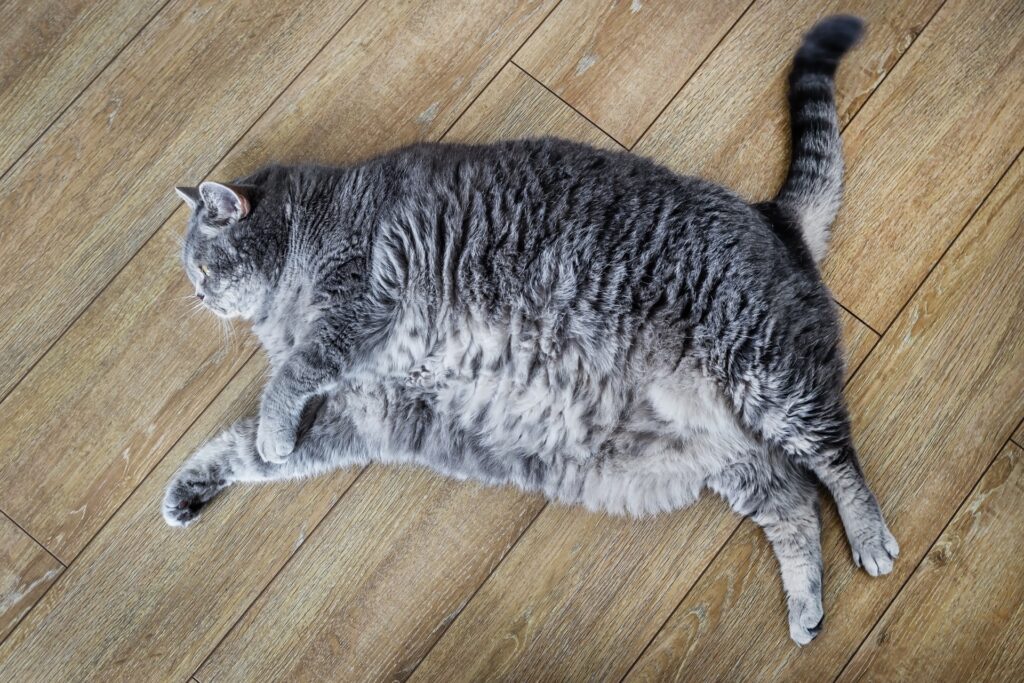If you have an obese cat it’s a more serious issue than you may realize. Recognizing the signs of cat obesity is crucial in order to address the problem early and ensure the health and well-being of your feline companion. If you notice any of these symptoms it’s crucial to take action and address your cat’s weight as early as possible so that they can live happily and healthily.
Signs That You Have an Obese Cat
If your cat is obese, the most easy-to-spot sign of that is going to be excess body fat. While this is often the most visible around the abdomen, it can also extend to your cat’s legs too. If your cat is lying on their back more as well it may also be a sign they are overweight or obese as they are trying to take the pressure off of their limbs from their excess weight.
Rib coverage is a crucial tool for determining whether your cat is overweight, and it’s also simple to perform at home by yourself. If you hold your hand palm down and feel your knuckles with the flats of the fingers on the opposite hand, this is how your cat’s ribs should feel just behind the shoulder blades. Plus, it’s a useful tool for gauging how much weight has been lost between official weigh-ins.

What Causes Your Cat to Be Obese?
Cat obesity can be caused by a variety of factors. One of the major causes is a low-quality diet. For instance, cats shouldn’t have access to feed themselves whenever they want. Make sure to only fill up a bowl with their food twice a day unless your veterinarian has told you to feed them more or less food.
What your cat eats is also important. Check the ingredients list before serving your cat dry kibble, wet food, or a combination of the two. Meat or fish should be the first ingredient listed on the nutrition facts.
How to Treat an Obese Cat
If your cat is obese then the next step is to make sure they get the right treatment so they can lose weight safely. To ensure your cat gets on the right diet specific to their health needs it’s best to talk to your local veterinarian. They can prescribe any foods they should have or will need to avoid and for how long. They may also recommend regular check-ups to make sure your cat is losing weight at the right rate.
If you suspect your cat may be obese or even if they have even just rapidly gained weight it’s best to get them looked at by a vet.
